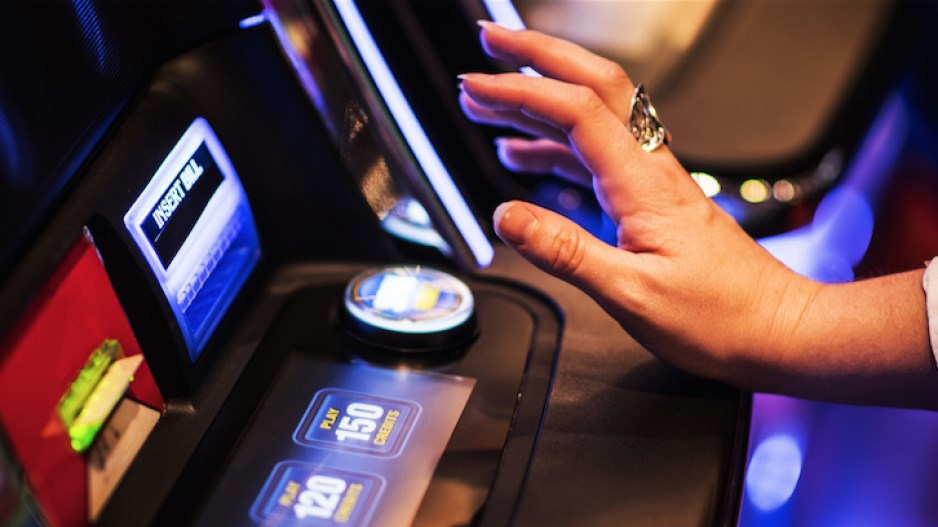A class-action lawsuit launched against the provincial government and the British Columbia Lottery Corp. alleges video slot machines in gaming facilities across B.C. are “inherently deceptive, inherently addictive and inherently dangerous when used as intended.”
Lead plaintiff Corina Riesebos filed a notice of civil claim under the Class Proceedings Act in BC Supreme Court on February 10. According to the claim, video slot machines deceive users with hidden odds and “create cognitive distortions” to keep people playing and losing money.
“Similar to loaded dice or games of sleight of hand, video slots combine randomness with subliminal priming, concealed asymmetry and non-linear payables to deceive the user as to the operation of the game and the real chances of winning,” the claim states. “Some video slots also have a ‘stop’ button or similar input that further reinforces the illusion that the user has some control over the outcome of play.”
But the lawsuit claims video slots cannot be controlled by users since the outcome is predetermined at the start of play by a random number generator. The machines are in use at 15 casinos, two racecourses and 18 community gaming centres, according to the lawsuit. The defendants, it claims, knew or should have known of the “deceptive, addictive and dangerous design features of video slots.”
“Use of the video slots as intended resulted in the Plaintiff and the Class suffering economic losses, emotional distress and mental anguish, and other expected harms flowing from these losses and injuries such as addiction, dependency, self-harm and/or suicide,” the claim states. “Given the Defendants’ unique positions as the monopolists and sole regulators of video slots, charged with a duty to act in the public interest, knowledge of the design features and effects of video slots should be attributed to the Defendants.”
Riesebos seeks class certification on behalf of all people who paid to play “line games on video slots” in B.C. from Febuary 7, 2018. The class action seeks declaratory relief that the defendants failed to provide a “fair and safe way to play video slots” and an order to disgorge $1 billion in profits and revenues for the “unlawful” promotion and authorization of video slot machines. The allegations have not been tested or proven in court, and the defendnats had not responded to the claim by press time.




